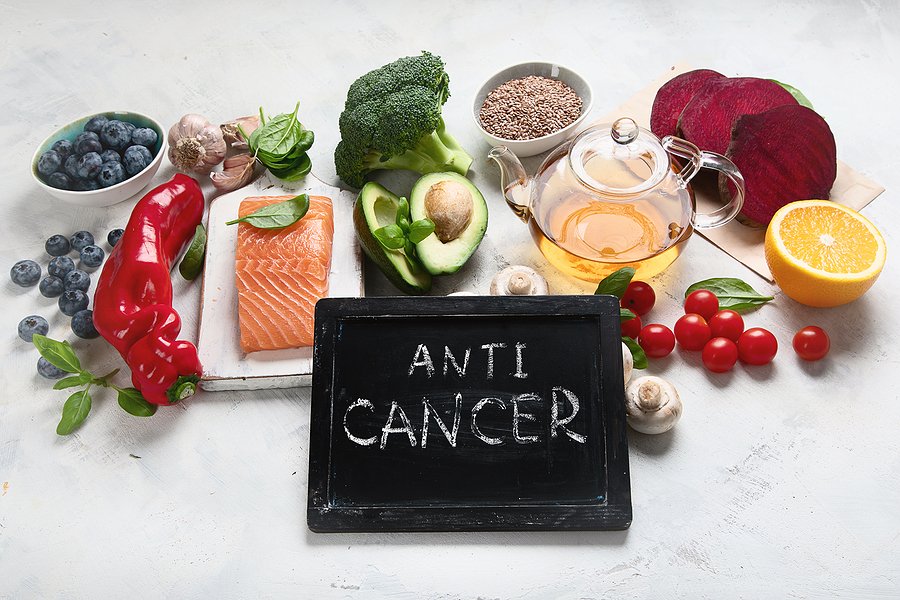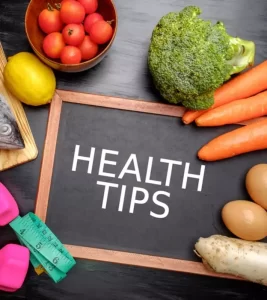Research suggests that diet and lifestyle changes can reduce the risk of developing cancer by approximately 40%.
It also suggests that a healthy diet can increase the recovery from cancer. However, much of the research about nutrition’s impact on cancer is limited, and there is no guarantee that your diet can help protect from cancer developing or to help to cure cancer.
Here, we will uncover what the research says about specific claims related to nutrition and cancer risk.
Protects Cells From Cancer
Antioxidants are compounds that stop the oxidation process. This effect can be seen in food, like when lemon juice is put on apple slices, the ascorbic acid prevents oxygen from browning the apples as quickly.
Antioxidants also help within the body by stopping free radicals from oxidizing and damaging cells. It’s claimed that having antioxidants can help to protect cells from becoming cancerous and that it can slow the growth of cancer cells.
Research supports this claim that antioxidants have anti-tumor, anti-carcinogenic, and anti-inflammatory effects. It supports that these effects help to treat cancer cell turnover, which slows down cell growth and protects healthy cells from mutating into cancerous cells.
Carotenoids
Carotenoids are the pigment responsible for the orange, yellow, and red colors in foods. A common carotenoid, beta carotene, is also a precursor to vitamin A. Research shows this compound might be protective against developing cancer.
Sources of catenoids include:
Lycopene
Lycopene is a bright red pigment found in foods. It’s antioxidant effects have been associated with preventing and treating cancer.
Sources of lycopene include:
- Tomatoes
- Watermelon
- Pink grapefruit
Lutein
Early research suggests the intake of lutein is associated with a decreased risk for developing cancer because it helps to protect cells.
Lutein is found in foods such as:
- Spinach
- Kale
- Yellow Carrots
- Zucchini
- Squash
- Egg Yolks
- Herbs—dill and chives
Kaempferol and Quercetin
Both kaempferol and quercetin are flavonoids that help to control the activity of cells and protect them from damage from free radicals. Research has associated these with a decreased risk of developing cancer.
Sources of kaempferol include:
- Kale
- Beans
- Tea
- Spinach
- Broccoli
Sources of quercetin include:
- Apples
- Honey
- Raspberries
- Onions
- Red grapes
- Green leafy vegetables
Curcumin
Curcumin is the bright yellow chemical found in turmeric and it contributes to most of the health benefits of turmeric. Early research shows this compound has great potential to help prevent and treat cancer, but it can have a poor absorption rate that can limit its effects. More research is needed before curcumin can be fully recommended for cancer treatment.
Curcumin is found in turmeric and can be added to the diet by using this spice in foods or drinks.




